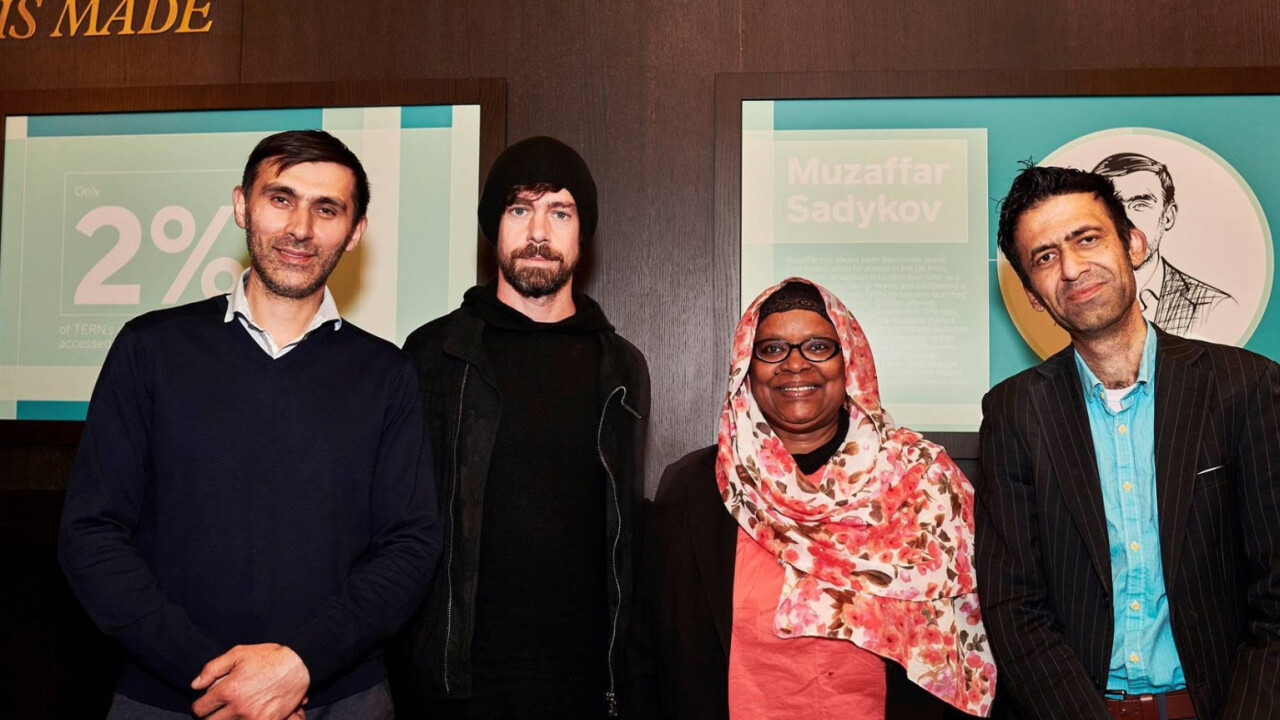
Europe’s refugee crisis is often framed as merely that – a crisis. The Syrian civil war, to name just one of the many humanitarian catastrophes that occurred this decade, resulted in a flood of people escaping to safety in Europe. It’s easy to forget that these people once had lives and careers. They went to school and university. They have their own God-given abilities and aspirations.
But tapping this human potential is proving challenging. Starting afresh is hard anyway. Factor in the inherent bureaucracies and frustrations of life as a refugee, and it’s almost impossible to create a new business.
Trying to address this problem is Square, the financial services giant founded by Jack Dorsey, who also serves as Twitter’s CEO. The company today announced a partnership with The Entrepreneurial Refugee Network (TERN), which will see it provide training, software, and hardware to business-minded refugees living in the UK.

The announcement comes as Britain’s capital celebrates London Tech Week, an annual festival of entrepreneurship, startups, and innovation.
Speaking to TNW from Square’s trendy office on London’s bustling Tottenham Court Road, a pensive Jack Dorsey explained that he regards empowering refugees as a policy problem, rather than a technical issue. And a solid first step to accomplish this is for Square to take an active role in engaging with lawmakers and regulators.
“We haven’t had enough of a partnership and collaboration between civil society – government – and companies like ours,” Dorsey admitted.
The problem is that any kind of financial services company is bound by mountains of regulation that affects every aspect of the business. Although the company carries itself with the disruptive veneer of a Silicon Valley startup, the fact remains that Square isn’t an exception. It must operate within the legislative and regulatory frameworks of wherever it’s based.
“We are highly regulated, and the regulations start with onboarding. If we can look for ways to ease some of those constraints, to enable more access, it becomes much easier,” Dorsey explained.
“There’s always going to be complications. I think we need to drive more of that collaboration,” he added.
It’s no surprise that Square would take up this challenge. The company fundamentally disrupted the card processing industry thanks to its now-ubiquitous card readers, allowing independent merchants to take cashless payments with a minimum of fuss. Drawing parallels with the company’s own history, Dorsey pointed out that legislation, previously perceived as insurmountable, can be changed.
“[Empowering refugees] isn’t a technological problem. These are technologies we can build,” he told me.
“When we started the company, people thought the only way you could get on the credit card system was a credit check of the FICO score. We worked really hard to push our bank. They worked really hard to push the regulator. We took the number of [vendors] taking credit cards from 40 percent to 99 percent.”
Part of that involved changing the mindset surrounding financial services, as Dorsey explained.
“The financial industry is ‘distrust, distrust, distrust.’ We’re ‘trust, but verify.’,” he said.
Of course, refugees come with their unique own problems when it comes to accessing financial services. Some might not have access to an identity document, which is often a prerequisite for opening a bank account. They may have a limited address history. And some banks may not want to do business with them based on their country of origin, as one Syrian refugee in Ireland discovered early this year.
Speaking to Dorsey, I couldn’t help but get the impression that he regards this problem as one of great moral importance. The Internet was designed to empower people. And while it has, it’s also fair to say that this opportunity hasn’t been equally distributed.
“The promise of the Internet is to increase access – to increase velocity. To enable people to participate. But we can’t do it alone, because we’re beholden to our banking partners and the regulators. We’ll push in what ways we can, but I think the best push comes from civil society,” he said.
This is a battle worth fighting. When you think of countries like Syria, it’s hard to remember that at one point, they were functioning middle-income societies with universities and businesses. Many of those who fled to the safety of Germany, Sweden, Canada, and Britain were once entrepreneurs themselves.
By helping them to restart their ambitions, you help them adjust to a new life. You give them hope. And crucially, they can enrich their new home as well as themselves. It’s a win-win for everyone involved.
Get the TNW newsletter
Get the most important tech news in your inbox each week.





